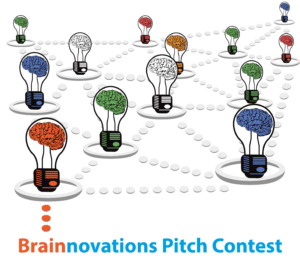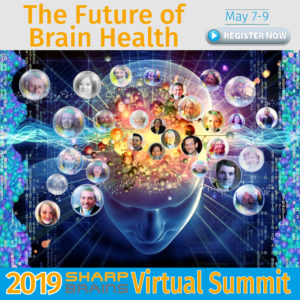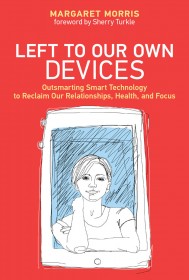10 Highlights from the 2019 SharpBrains Virtual Summit to shape the Future of Brain & Mental Health
![]() _____
_____
Wow. Fascinating three days last week. Some of our favorite moments and take-aways…
1. Dr. Tom Insel provided a spectacular overview of the digital revolution in brain health and mental health. While we have historically failed to bend the curve as well as in other areas of health, since “you can’t manage what you can’t measure”, new digital and neurological monitoring technologies are finally allowing us to remedy that fundamental issue so we can identify problems early and intervene early. Multiple Speakers during the Summit like Dr. Srijan Sen, Jan Samzelius and Louis Gagnon built upon Insel’s remarks with much research, tech and examples.
 2. Richard Hanbury won the 2019 Brainnovations Pitch Contest by presenting a novel combination of audio-visual stimulation and neurofeedback training to alleviate chronic pain. Our “Sharp Tank” Judges were very impressed by Kate Sharadin work too, who came in as close second thanks to her digital therapeutics startup.
2. Richard Hanbury won the 2019 Brainnovations Pitch Contest by presenting a novel combination of audio-visual stimulation and neurofeedback training to alleviate chronic pain. Our “Sharp Tank” Judges were very impressed by Kate Sharadin work too, who came in as close second thanks to her digital therapeutics startup.
3. Dr. Anna Wexler, Dr. Karen Rommelfanger and Jacqueline Studer shared a fascinating session on privacy and ethics, helping to bridge academia and industry. We lack clear standards and taxonomies for neurotechnology, but they mentioned several initiatives to anticipate and address the challenges, and encouraged participants to be aspirational rather than “legalistic” — by considering diverse perspectives, striving for the widest benefit with the minimum risks, and educating users, we can enable beneficial innovation in ways that regulation alone, as important as it is, probably cannot.
4. Several presenters including Dr. Lew Lim, Ana Maiques and Nickolai Vysokov discussed the growing field of adaptive and personalized neuromodulation methods. This emerging technology class deserves attention and research, as it could mean a non-invasive, non-pharmacologic treatment for a variety of conditions. (For example, the FDA recently cleared the use of the first non-drug treatment for ADHD thanks to the study discussed here).
 5. The theme of personalization was also discussed by presenters working on an array of brain-based and cognitive therapies in schools, the workplace and consumer tech. Speakers like David Klein, Ariel Garten, and Dr. Gregory Rose discussed emerging findings and best practices in the “real word” outside of research labs and clinical settings.
5. The theme of personalization was also discussed by presenters working on an array of brain-based and cognitive therapies in schools, the workplace and consumer tech. Speakers like David Klein, Ariel Garten, and Dr. Gregory Rose discussed emerging findings and best practices in the “real word” outside of research labs and clinical settings.
6. Back to cutting-edge research, Dr. Nir Grossman and Dr. Reza Zomorrodi unveiled exciting advances in non-invasive brain stimulation while Dr. Peter Whitehouse reminded us of the critical importance of societal factors which impact the individual brain and of community-based interventions that can help promote brain health. Dr. Hagit Alon discussed funding opportunities to advance the “Neuro-Wellness” field.
7. Dr. Deanna Belsky, Dr. Tony Chang, Avery Bedows, Elan Tye and other venture investors throughout the Summit discussed the opportunities and challenges for a successful marriage of research and commercialization, navigating the combination of reliable science and tech, feasibility, and market need.
8. We had an “Oprah moment” when Marcel Legrand at Total Brain promised to give away licenses for all Summit participants to try out their corporate wellness platform to better assess, understand and improve brain capacities.
 9. Dr. Margie Morris presented Left to Our Own Devices (MIT Press; 2018), a great book providing multiple stories and examples on how to outsmart our smartphones, and Alvaro Fernandez presented his latest book El Cerebro Que Cura (“The Brain That Heals;” Plataforma Editorial; 2019), co-authored with Dr. Alvaro Pascual-Leone, which proposes a simple but revolutionary idea — a healthy mind/brain is both the product and the driver of overall physical health.
9. Dr. Margie Morris presented Left to Our Own Devices (MIT Press; 2018), a great book providing multiple stories and examples on how to outsmart our smartphones, and Alvaro Fernandez presented his latest book El Cerebro Que Cura (“The Brain That Heals;” Plataforma Editorial; 2019), co-authored with Dr. Alvaro Pascual-Leone, which proposes a simple but revolutionary idea — a healthy mind/brain is both the product and the driver of overall physical health.
10. All this, and much more, happened during 3‑days and engaging up to 174 participants in 18 countries…and yet not even one person outside the organizing team had to jump on a flight and generate tons of travel-related CO2 emissions…
Time to protect those precious natural resources outside AND inside our skulls :-)
– Alvaro Fernandez is the CEO & Editor-in-Chief of SharpBrains, and Brandon Frank is a PhD candidate at Fordham University with a concentration in Neuropsychology.


